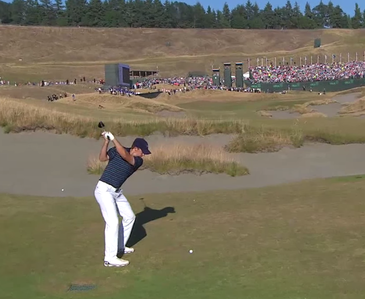 Jordan Spieth’s win in the recent US Open at Chambers Bay Golf Course reminded me of the old maxim that “the cream always rises to the top,” which seemed fitting given that a significant percentage of the world’s top ranked golfers played particularly well during US Open week. It doesn’t seem to matter whether the greens are bumpy, smooth, fast, slow, undulating or relatively flat, the best golfers will find a way to play the difficult golf courses just a little bit better than the rest. What is the Difference That Makes the Difference? Like many before me I’ve wondered why these exceptional golfers seem to play better--especially in major championships, and I’ve looked closely at this over a long period of time trying to understand what the difference is that makes the difference. Why is it that they just seem to play a little bit better when it matters? Maybe it’s their techniques? I think we can all agree that it’s not their techniques, because at this level they can all hit it and putt it exceptionally well, and let's face it, every golf swing on the tour is different both in terms of style and function. Maybe it’s experience? Nope, that won’t hold much water when you consider that young golfers like Jordan Spieth and many before him started winning pretty quickly, which is interesting because many other professional golfers who have played for years never win anything of significance. 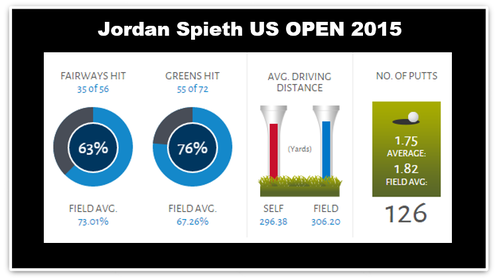 Maybe their stats are better? Yes, it’s a given that if you trawl their stats there’s no doubt that you will probably find one or more departments where these golfers are just a fraction better than everyone else over a season. And I mean a fraction better, so small in-fact that it may not be the real difference that makes the difference. Maybe they are fitter golfers? Yes, again it definitely helps to be fit for golf—especially at tour level when you compete over 4 days. But there are many in history who were not that fit who still performed at an exceptional levels. So let’s face it, we could go on and on and discuss (and even debate) the reasons until the end of days, and the above factors and plenty of others will have some impact on why these golfers play so well in the big tournaments. But when all is said and done, the fundamental difference that makes the difference is quite simply that they produce a slightly lower score average over 4 days of tournament play. Nothing too startling about that I know, it’s just the simple truth of it. But Why Do Great Golfers Score Lower in Big Tournaments? It doesn’t matter which successful golfer you look at over the past 100 years from Bobby Jones to Jack Nicklaus, or Lady Heathcote Armoury to Karrie Webb, the one common denominator is that every one of these great golfers rose to the top of golf because of a lower score average in big tournaments. They found their way to lower golf scores in big tournaments when it matters, and so can you. Take a look at the world rankings for the week of the US Open (Below) and compare the players World ranking (Left Column) to their finish at the US Open. Notice how many of the top 20 ranked golfers also finished inside the top 20 of the US Open field. Also you will notice that 7 of these golfers in the top 20 have previously won major championships. These great players were able to gear their game to the particular challenges of the Chambers Bay layout and finish high up the leader-board. So the million dollar question is what is the difference that makes the difference with these golfers? Yes we know they have lower scores in big tournaments but how? What can you learn from the way they play that will help you to play better in the big events you play in? 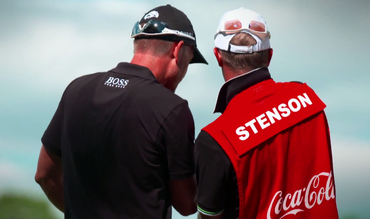 Great Golfers are ADAPT-ABLE Golfers Great Golfers are ADAPT-ABLE Golfers Adapt-Ability the Key to Success in Big Tournaments The one common denominator that these great golfers all possess is a strong self-belief in their ability to contend consistently against the best in the world on any style of golf course, in any type of conditions, anywhere. These great golfers have developed their Adapt-Ability, the ability to manage them-self and their game in the crucible of competition on any golf course, and they do it with the help of the following;
Gear Your Game to Worst Case Scenarios NOT Best Case Great golfers know that golf is predictably unpredictable, that-is it requires the ability to make continual adjustments in your attitude and your skills because the conditions change all the time. The golfer with the most flexible attitude, with a golf bag full of skills, and a game that is completely adapt-able will be at their best when it matters most. Golf preparation comes in many forms but great golfers get the basics right every time.
Great golfers build their game around the worst case scenario, NOT the best case. This means that there are no surprises in store for them when they play, that their meticulous preparation helps them to be in great mental, physical, strategic and technical shape going into major tournaments. The lesson you can learn from watching great golfers like Jordan Spieth is that they know that the real secret to playing your best golf on tough layouts starts with working on yourself and the insecurities that get in the way of you "just playing golf." These golfers play a little better than the rest of the field in the big tournaments because they develop Adapt-Able Skills into their game to give them the best opportunity possible to play their best in every type of situation imaginable.  Perth and Jakarta Perth and Jakarta So take a good and hard look at your game right now and ask yourself this question. If I had played Chambers Bay the week of the US Open and I knew that the course was going to be the way it was for the event 6 months before I played it, what mental, physical, strategic and technical skills would I need to work on and improve to make me more Adapt-Able and competitive going into the event? Lawrie Montague and David Milne - Pro Tour Golf College The Professional Golf Tour Training College Comments are closed.
|
Archives
June 2019
|
Proudly Supported By
Copyright © 2011 - 2018 Pro Tour Golf College
Website Managed By Golf Performance Media
All Rights Reserved
Website Managed By Golf Performance Media
All Rights Reserved

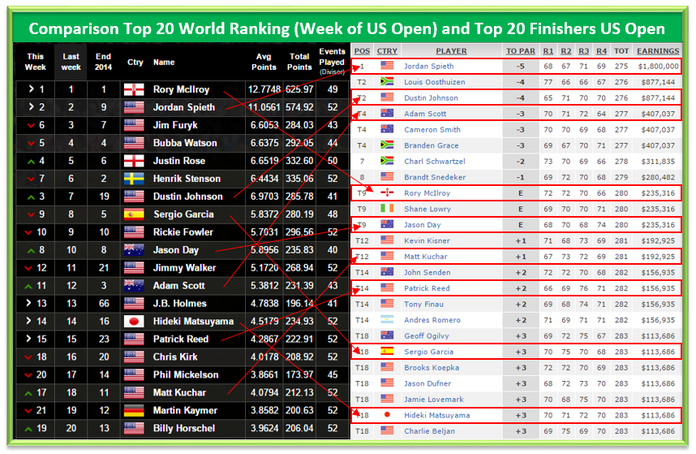

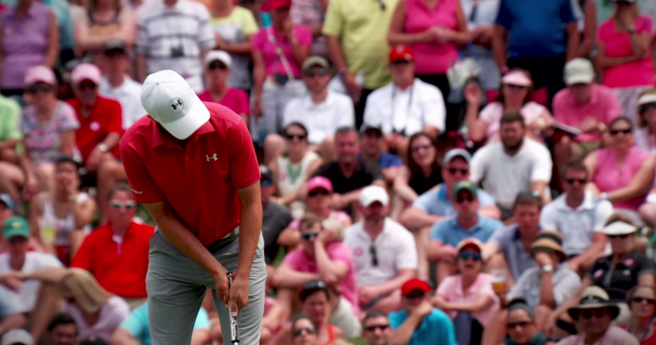

 RSS Feed
RSS Feed



